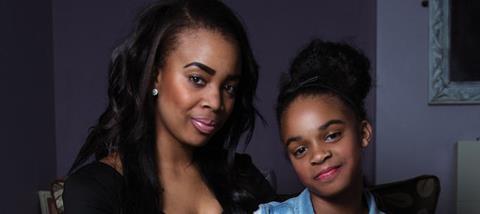
(ALL PHOTOS ARE FROM JENDELLA’S YOUTH MOTHERHOOD EXHIBITION)
LVDH: What made you focus on young mothers for this project?
J: I have a lot of friends who are young mums and I’ve had the privilege of watching them raise their children, try to work, go to university and that kind of thing. I was very aware that even though they were working hard and doing lots of good things for themselves and their children, the wider perception of them was very negative. There are so many stereotypes and presumptions about why and how they got pregnant. The main aim behind the project is to address those stereotypes and misconceptions, and to encourage other young mums, letting them know that they’re not alone in what they’re going through.
THE MEDIA LIKES TO TALK ABOUT YOUNG MUMS WHEN IT’S CONVENIENT, BUT THEY NEVER TALK TO THEM
LVDH: What are these unhelpful stereotypes?
J: There’s the stereotype that young mums get pregnant to get a council house and benefits. There’s the stereotype that they’re promiscuous or very sexually active from a young age, or that it’s due to family dynamics because they’ve grown up in broken homes. There’s this general belief that they’re not doing a good job.
There are a lot of statistics that come out and say that children of young mums are more likely to end up in prison or on drugs, or that they will become young parents themselves. So, it’s very present in people’s consciousness, even to the point where you have suggestions of policy from MPs that cater towards those stereotypes.
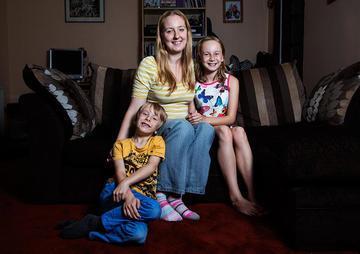
LVDH: How do you feel about the way the media often presents young parents?
J: It’s really unhelpful because it shapes how the general public sees young mums. I have a lot of stories from friends and people I interviewed for the project, who say that they will be out and about with their children, minding their own business, and people will make comments about them. If the baby is crying they will look at them as if to say that they can’t take care of their child. Generally the media likes to talk about young mums when it’s convenient and helps with the headlines and scaremongering, but they never talk to them. It’s the same kind of stories being regurgitated over and over.
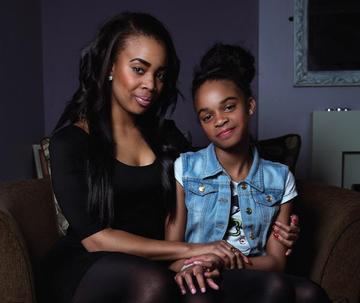
J: They came from all over the place. I had a lot of friends involved, but also people were telling their friends and families about the project, so I had a lot of people I didn’t know getting in touch and saying that it sounded great and that they’d like to tell their story. From there I interviewed them, videoed the interviews and took portraits of them and their children.
The reception has been really good. It blows my mind a little bit, because when I was applying for funding, the organisations I approached said that no one was interested in this and that it wouldn’t make a difference. But as I was doing the project the feedback and encouragement from young parents, their family members, people who work with them and general members of the public has been great. They’re so glad that someone is doing this.
WE SHOULD LOOK AT HOW WE CAN LOVE, CELEBRATE AND SUPPORT PEOPLE, EVEN IF THEIR LIVES DON’T NECESSARILY LINE UP WITH THE PRINCIPLES WE HOLD DEAR
LVDH: Can you tell us stories of one or two mums you interviewed for the project?
J: There are people who were in abusive relationships from quite a young age, and having their child brought the awareness that they couldn’t stay, as they wanted to make a better life for themselves and their child. Others were in great relationships and they’re still in those same relationships today with the father of their child.
A lot of people say, ‘what’s the rate of young mums who stay with their partner who is the father of their child?’ It’s one of things where it becomes an issue because the media has made it an issue that young mums are promiscuous. There are so many different kind of nuances to the situation. In some places it’s better that they leave because the partner has not supported them or has been abusive. In other cases it’s fine and the relationship works out.
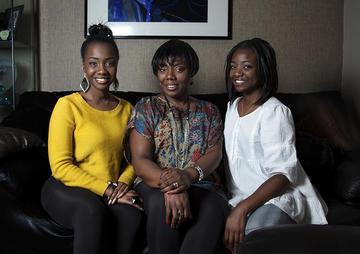
One woman said that she wasn’t confident before she had a child. She had her son when she was 17. As soon as she got pregnant it was the wake-up call she needed to choose what she was doing and to create a life for herself and her child. She got a lot of confidence from becoming a mother. Even though it was at a young age, she felt that she could take control of her life and make decisions that would benefit her and her child.
There are others who didn’t go to university at first, but afterwards they went and got their degrees, showing that a child doesn’t hold you back and you can still do everything that you need to do. One of my favourite stories is about a woman who had her daughter when she was 17 and she was the only one of her cousins who had a baby that young. Her daughter was the first one of all her family to go to university and was the one that came from a young parent. Those are the kind of stories that completely buck the stereotypes. There’s so many ways that someone’s life can go. It’s important that they get the support that they need and know that they’re valued. Just because they had children young, it doesn’t mean that they can’t do what they need to do and it doesn’t mean that their life is any less significant than anyone else’s life.
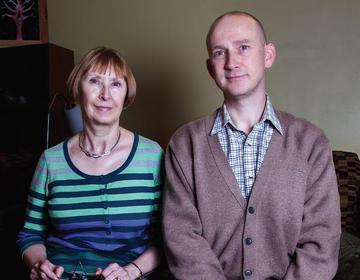
J: Sometimes when it comes to young mothers, Christians can be quite wary, because we have certain beliefs about marriage and sex and children. One of the things people have said to me is, ‘Don’t you think that you’re promoting being a young parent by doing this project?’ For me, it’s not really about promoting one thing over another. It’s about supporting people, championing people and giving people the respect they deserve regardless of what you may feel about their decisions. That’s to say that we have to put morality to the side, but at the end of the day I feel we should always prioritise people over the principle. We should first and foremost look to how we can love people, how we can celebrate people and how we can support them, even if their lives don’t necessarily line up with the principles we hold so dear.
Doing that doesn’t negate your faith. It doesn’t mean that you don’t believe what you do or that you’re not a real Christian, or that your faith isn’t strong.
Ultimately, Jesus loved people and he sat with tax collectors and prostitutes. Not that I’m comparing young mums to tax collectors and prostitutes, but when he sat with people who weren’t necessarily what people considered shining examples of society, he valued them as individuals over what other people would say about him or them. I think that’s definitely something we could learn – to look at people as individuals, rather than everything else attached to them.
LVDH: What do you think that churches and youth workers could be doing to change attitudes and the way we’re responding to young mums?
J: First and foremost we need to listen and find out what people are struggling with and what the situation is. We can come with all our preconceptions, but they’re not necessarily the case. I think we need to listen and support people where they actually need help. One of the things that a lot of young mums said was that it wasn’t sex education that was the issue, but a lack of relationship education. They didn’t necessarily know what a healthy relationship looked like, or what it meant to be in healthy and supportive relationships.
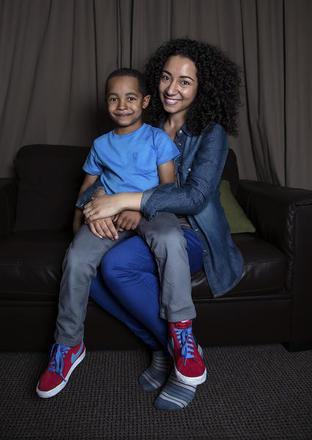
LVDH: Are there things we can do to make our churches and services more relevant and more supportive places for young parents to come into?
J: Aside from the practical issues such as childcare, having church services where the people who lead the service or are involved in it reflect the community a bit more is helpful. This means diversity in the pulpit, whether that’s in terms of gender, ethnicity, or even just life situations. It is encouraging when people can see others who have been in situations like them who are now leading and doing things that they maybe never considered they could do.
LVDH: What’s your approach as a photographer?
J: It’s changed over the years. I’m now focusing on telling people’s stories and telling the stories that the wider media might not necessarily pay attention to or want to hear. There was a time when I thought I’d go off into fashion or advertising, but as I’ve done a bit of soul searching and praying, I feel that my gifts are better served telling people’s stories and giving honour to people who might not necessarily receive honour from the mainstream media.
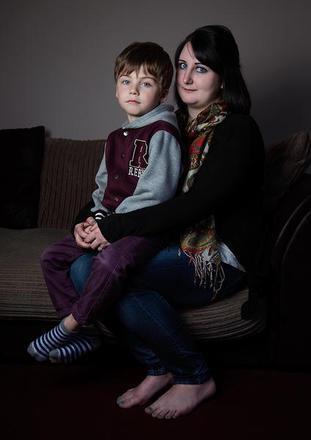
J: Definitely. I think that one of the pivotal things that has kind of given me direction has been my faith; knowing that I can use my gifts in tandem with my faith, without it necessarily meaning that I’m a Christian photographer who can only take photographs of Christian things for Christian purposes, but that the principles of my faith can guide me creatively and make me do work that is not just technically good but has got a heart and a message behind it.
The exhibition is on display until January, when it will be shown at the House of Commons. Information can be found at youngmotherhood. co.uk







































